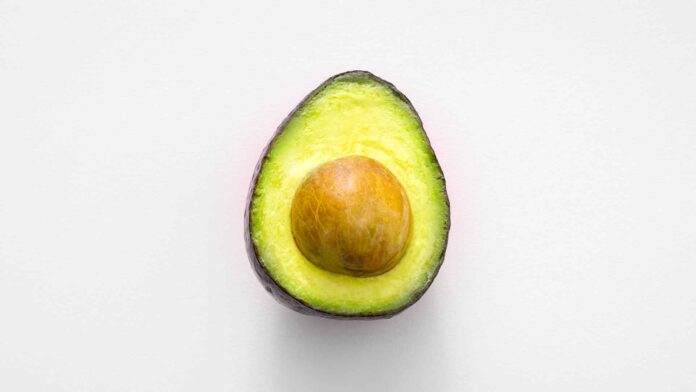
Unhealthy nutrition is a grave concern in today’s fast-paced world. With tempting fast food, sugar-laden drinks, and convenience store snacks, it’s easy to fall into the trap of poor dietary choices. In this detailed article, we’ll delve deep into the world of unhealthy nutrition, exploring its impact on your health, and how you can make positive changes.
Unhealthy eating habits can lead to a range of health issues, from obesity to heart disease. It’s essential to be aware of foods that are considered unhealthy and to consume them in moderation, if at all. Here’s a guide to some of the most common unhealthy foods:
Understanding Unhealthy Nutrition
Unhealthy nutrition refers to the consumption of foods and drinks that lack essential nutrients and are often high in calories, sugar, salt, and unhealthy fats. These choices can lead to a host of health problems.
Unhealthy nutrition is not just about eating a few too many cookies; it’s a lifestyle that can have far-reaching consequences.
The Consequences of Unhealthy Nutrition
Poor dietary choices can wreak havoc on your health. Here are some of the dire consequences:
- Weight Gain: Consuming high-calorie, low-nutrient foods can lead to obesity.
- Heart Disease: A diet high in saturated fats and sodium can increase the risk of heart disease.
- Diabetes: High sugar intake is a leading cause of diabetes.
- Digestive Problems: A lack of fiber can result in digestive issues.
- Nutrient Deficiencies: Unhealthy eating often means missing out on crucial vitamins and minerals.
The Link Between Unhealthy Nutrition and Mental Health
Unhealthy nutrition doesn’t just impact your physical health; it can also affect your mental well-being. Studies have shown a connection between poor dietary choices and mental health issues, including depression and anxiety.
Expert Insights
I’ve had my share of battles with unhealthy nutrition. I used to reach for sugary snacks during stressful times, and the result was a rollercoaster of energy levels and mood swings. However, I learned the hard way that making healthier choices improved not only my physical health but also my mental state.
How to Break Free from Unhealthy Nutrition
Breaking free from the shackles of unhealthy nutrition isn’t easy, but it’s entirely possible. Here are some steps to guide you:
- Educate Yourself: Start by learning about nutrition and understanding what your body needs.
- Meal Planning: Plan your meals in advance to ensure you have healthy options readily available.
- Stock Up on Healthy Snacks: Replace those tempting unhealthy snacks with fruits, nuts, and yogurt.
- Moderation: It’s okay to enjoy your favorite unhealthy treats occasionally, but in moderation.
- Hydration: Drink plenty of water to curb unnecessary cravings.
- Seek Support: Share your journey with a friend or seek professional guidance.
1. Fast Food
Fast food is often high in calories, unhealthy fats, and sodium. Frequent consumption can lead to weight gain and an increased risk of chronic diseases such as diabetes and heart disease.
2. Sugary Drinks
Sugary drinks like soda, fruit juices, and energy drinks are loaded with added sugars. They can contribute to weight gain, tooth decay, and an increased risk of type 2 diabetes.
3. Processed Snacks
Chips, cookies, and other processed snacks are often high in trans fats, unhealthy oils, and preservatives. These can lead to weight gain and heart problems.
4. Sugary Cereals
Cereals that are high in added sugars are a common breakfast choice. They can lead to energy crashes and increased sugar cravings throughout the day.
5. Red Meat
While red meat can be a source of protein and nutrients, consuming it in excess, especially processed red meat, has been linked to an increased risk of heart disease and certain types of cancer.
6. Fried Foods
Fried foods, like French fries and fried chicken, are high in unhealthy trans fats and can contribute to obesity and heart disease.
7. Alcohol
Excessive alcohol consumption can lead to liver damage, addiction, and a range of health problems. It’s essential to drink in moderation.
8. High-Fructose Corn Syrup
High-fructose corn syrup is a sweetener found in many processed foods and sugary drinks. It’s linked to obesity and metabolic issues.
9. Excessive Salt
A diet high in salt can lead to high blood pressure, heart disease, and stroke. Processed and restaurant foods are often packed with hidden sodium.
10. Excessive Sweets
Consuming too many sweets like candies and desserts can lead to weight gain, tooth decay, and an increased risk of diabetes.
Unhealthy Nutrition FAQs
Q: Can I never eat my favorite junk food again?
A: You can enjoy your favorite treats occasionally, but it’s essential to limit their consumption.
Q: What are some healthy snack alternatives?
A: Opt for fruits, vegetables, nuts, Greek yogurt, or whole-grain crackers.
Q: How can I overcome food cravings?
A: Stay hydrated, distract yourself, and remind yourself of your health goals.
Q: Is a cheat day a good idea?
A: Occasional cheat days can be okay, but be mindful not to overindulge.
Q: Can unhealthy nutrition be reversed?
A: Yes, with commitment and a gradual shift toward healthier choices, you can reverse the effects of unhealthy nutrition.
Q: Should I consult a nutritionist?
A: If you’re struggling to make dietary changes, consulting a nutritionist can provide tailored guidance.
Conclusion
Unhealthy nutrition is a pervasive issue with far-reaching consequences. However, with knowledge, determination, and support, you can break free from the chains of unhealthy eating and pave the way for a healthier, happier life.
While it’s okay to enjoy these foods occasionally, they should not be staples in your diet. Moderation is key, and it’s important to prioritize a balanced diet rich in fruits, vegetables, lean proteins, and whole grains for optimal health. Always consult with a healthcare professional or a registered dietitian for personalized nutrition advice.
Consider this Healthy Nutrition Grocery List:

